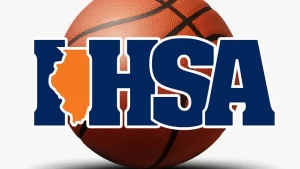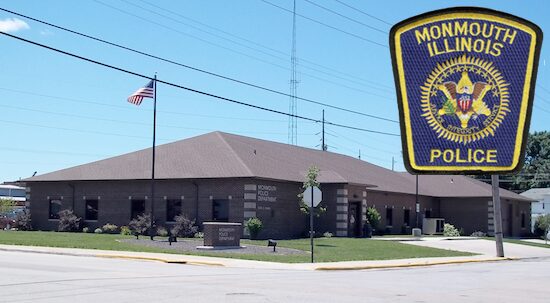SPRINGFIELD – With the New Year comes a host of new laws that affect many aspects of Illinoisans’ lives, according to State Sen. Jil Tracy (R-Quincy).
In all, 285 new laws will take effect Jan. 1. Many others bills were passed during 2021 but include effective dates further out into the future in 2022, 2023, or beyond.
Tracy says these new laws cover a wide variety of subject areas. Some of the more notable laws that residents should be aware of taking effect on Jan. 1, 2022, include:
Minimum Wage
Illinois employers are bracing for another increase in the minimum wage as they continue to get back on their feet following forced closures during the pandemic. On Jan. 1, the minimum wage increases to $12-per-hour, and will continue to increase on Jan. 1 each year until it hits $15-per-hour on Jan. 1, 2025.
FOID
Significant changes to FOID system
This year, the Legislature passed comprehensive changes to the state’s FOID system. Proponents call the reforms important public-safety improvements, while opponents, including most Senate Republicans, felt it was yet another attack on law-abiding gun owners and a gateway to mandating fingerprints. As signed into law, the new FOID law:
- Encourages but does not require fingerprinting. Those who agree to fingerprinting are granted a streamlined process for renewal of FOID Cards and CCL licenses.
- Allows for the Illinois State Police to issue a combined FOID Card and concealed carry license to qualified applicants.
- Requires the Illinois State Police to establish a public database of all firearms that have been reported stolen to be checked prior to the transfer of any firearm to prevent the inadvertent transfer of stolen firearms.
- Tasks a new Violent Crime Intelligence Task Force to conduct enforcement operations against those with revoked FOID Cards.
In addition to the above provisions, which take effect on Jan. 1, the following additional provisions take effect on Jan. 1, 2024:
- Requires person-to-person firearm transfers to be subject to National Instant Criminal Background Check System (NICS) checks at a federal licensed firearms dealer or through online validation by the Illinois State Police using NICS.
- Requires Federal Firearms Licensures (FFL) to keep the record of a transfer for 20 years. On the demand of a peace officer, transferees have to identify the FFL dealer maintaining the transfer record. The penalty for not doing so is a Class A misdemeanor.
- Requires that those who receive a firearm in a private transfer must provide a record of the transfer to a licensed firearm dealer within 10 days. The dealer in turn must keep the record for 20 years and may charge up to $25 for keeping it. The recipient of the firearm must be able to provide the name of the firearm dealer maintaining the record for that particular firearm upon demand by law enforcement. Failure to do so is a Class A misdemeanor.
Public Safety
Omnibus criminal justice reforms take effect
In the middle of the night during a January 2021 lame-duck session of the General Assembly, Democrats pushed through a 764-page criminal justice reform bill that makes major changes to how law enforcement officers do their jobs. Provisions of the bill, which include several elements opposed by law enforcement and victims’ advocacy groups, take effect at different times.
One provision of the law taking effect at the beginning of the New Year includes the start of the phase-in requirement that all law enforcement officers in the state wear body cameras by 2025. Counties and cities with populations of 500,000 or more (City of Chicago; Cook, DuPage, Kane, Lake, and Will counties) will have to meet this requirement by Jan. 1, 2022, and then smaller departments will be phased in over the next few years.
Provisions of the bill with later effective dates include:
Effective Jan. 1, 2023:
- Abolishes monetary bail and gives broad discretion to judges to determine detention.
- Forbids arrest for resisting arrest/obstructing unless there is an underlying offense. Note: passage of a trailer bill – Public Act 102-0028 – separated resisting from obstructing so that you can arrest someone for obstructing without an underlying offense.
- Prohibits an officer from making a custodial arrest for Class B misdemeanors, which includes property trespassers and peeping toms. Instead, all an officer can do is issue the offender a citation but can no longer remove the person from private or public property.
Adding email and social media posts to stalking/no contact orders
To close a loophole some predators were using to reach targeted victims, the Legislature has taken steps to strengthen the Stalking/No-Contact Order Act. As of Jan. 1, a person who is prohibited through a no-contact order from contacting another individual by phone or in person can also be restrained from sending email, texts, or social media posts.
Strengthening penalties against child predators
Legislators also closed a loophole that allowed family members found to be in possession of child pornography to escape jail time. Through an amendment to the Code of Corrections, child pornography laws are strengthened by making possession of child pornography when the child is a household or family member of the defendant a non-probational offense. Previously, this category of offenders could receive a sentence of probation for their pornography conviction.
Education
Optional college admissions testing
Beginning Jan. 1, all of Illinois’ public universities and community colleges must offer a “test-optional” policy as part of its undergraduate admissions process. This means that students can choose whether or not they will submit SAT, ACT or other test scores as part of their applications for college. The law only affects admissions processes for the state’s public institutions of higher learning.
Mental health excused absences for Illinois public schools
When students return to school in January, they will have up to five excused absence days available to them that can be used for mental or behavioral health. Students will not have to provide a medical note when using these days, and they must be given the opportunity to make up any missed school work assigned during the mental or behavioral health absence.
Agricultural Sciences as an official class to meet state requirements
For high school students, courses in agricultural sciences will now count toward the three-year minimum of science classes required for admission into a public university in Illinois. Classes in agricultural sciences can also now be taken to fulfill the two-year requirement of elective courses for admittance into a public university.
Outlining the costs of college
Through a new comprehensive report that must now be completed by all public universities in Illinois, when a student declares or changes a major of study, the public university the student attends must provide that student with a report that includes the following:
- The estimated cost of his or her education associated with pursuing a degree in that major;
- The average monthly student loan payment over a period of 20 years based on the estimated cost of his or her education;
- The average job placement rate within 12 months after graduation for a graduate who holds a degree in that major;
- The average entry-level wage or salary for an occupation related to that major; and
- The average wage or salary five years after entry into an occupation related to that major.
Veterans
Free Gold Star license plates for survivors
As of Jan. 1, the State of Illinois will be offering free Gold Star license plates for a surviving widow, widower, or parent of a person who served in the U.S. Armed Forces and lost his or her life while in wartime service. Previously, a $151 registration fee was charged for these specialty plates.
State flags for next of kin
In an effort to show appreciation of the life and service of Illinoisans who answered the call to serve in the Armed Forces, upon the death of an Illinois serviceman/woman, a member of the Illinois National Guard will present a State of Illinois flag to the next of kin.
Public Health
Repackaging unused prescription medications
Beginning in January, those who struggle to afford their prescription medications can take advantage of a new program that makes their medicines more affordable. Through the new Illinois Drug Reuse Opportunity Program Act, individuals may now donate their unused prescription medications back to participating pharmacies, which could then repackage them and make them available to patients in need. Pharmacies may charge a nominal handling fee.
Consumer Protection
Providing for free early cancellation of service contracts in the event of a death
When a family member passes away, survivors should not be saddled with cancellation fees for the lost loved one’s utilities. As of Jan. 1, providers of telephone, cellular phone, television, Internet, energy, medical alert system, and water services are prohibited from charging a fee for termination or early cancellation of a service contract.
Let the kids be kids
While many felt it should not have required legislative intervention, members of the General Assembly passed a law this year that prohibits the Illinois Department of Public Health and local health departments from regulating lemonade or nonalcoholic drink stands operated by kids younger than the age of 16. The need for the law stemmed from an instance where a lemonade stand was shut down because the child had not obtained the required permit for the stand.
And don’t forget about the controversial bills that will also take effect in 2022:
Significant changes made to sex education in schools
This year, the Legislature passed a controversial bill limiting local control over sex education by implementing sweeping new state standards. The bill, passed by Democrats and signed into law by Gov. JB Pritzker, requires public schools that teach sex education to align their sex-education courses with the so-called National Sex Education Standards – standards formulated by out-of-state advocacy groups. These standards are now a baseline for sex education throughout the state. Sex-education courses must also provide information about local sources for additional information and confidential services related to reproductive health. The revamped sex-education classes may be taught from kindergarten through 12th grade.
No later than Aug. 1, 2022, the State Board of Education must develop and provide resource materials that can be used in the new sex-education classes. Schools may choose their own curriculum as long as it aligns with the standards outlined above.
Discrimination in the workforce allowed through carve-out in HCRCA
Despite unprecedented opposition from everyday Illinoisans who urged the General Assembly not to make exceptions within the Health Care Right of Conscience Act (HCRCA), starting June 1, 2022, Illinoisans will see a diminishment of protections against health-related discrimination in the workplace.
The HCRCA, originally enacted with bipartisan majorities, provides vital protections to Illinoisans and prohibits any form of discrimination against individuals who refuse to take part in any medical services or procedures that are contrary to their religious beliefs, morals, or convictions. A partisan carve-out was passed in the General Assembly by Democrats this year which now means these protections do not apply to COVID-19 vaccines or testing. Through the new law, people now can be discriminated against, punished, and even lose their jobs if they do not agree to mandatory vaccinations, even if individuals agree to regular testing.
***Report Courtesy of Lisa Sims, from the Office of State Senator Jil Tracy***














